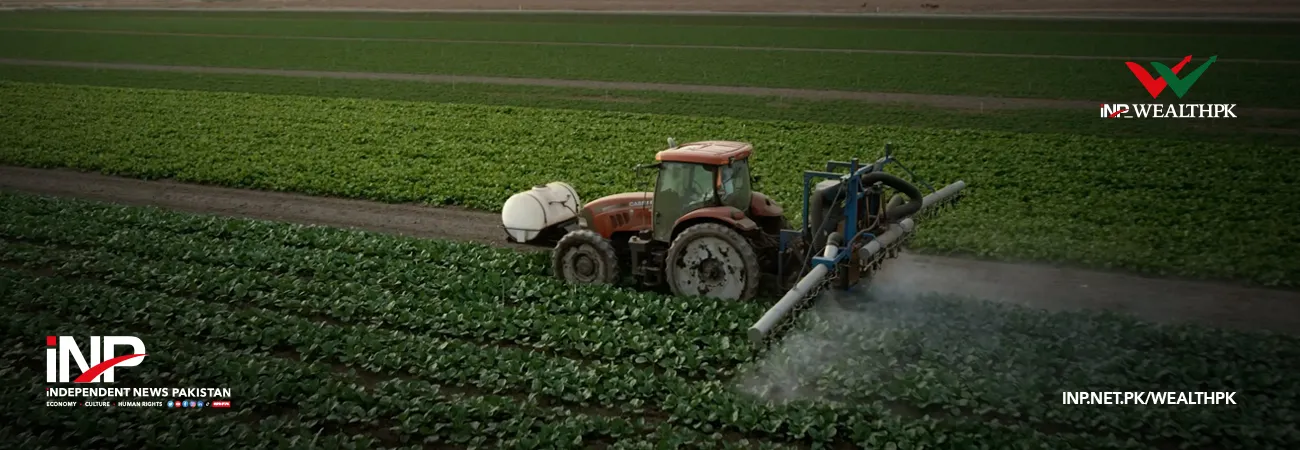INP-WealthPk
Arooj Zulfiqar
The shortage of food items looms large in Pakistan as the recent devastating floods have destroyed agricultural lands and orchards in many areas besides perishing a large number of domestic animals, WealthPK reports. The government needs to take immediate and concrete steps to avert the looming crisis of food shortage in the country. The rehabilitation of the agriculture sector should be the top priority of the authorities concerned to ensure food security. The torrential monsoon rains and subsequent floods can be attributed to climate change. Although Pakistan contributes less than 1% to global greenhouse gas emissions, it faces natural catastrophes as one of the most climate-vulnerable countries on earth.
Prof Muhammad Azam Khan, the chairman of the department of horticulture at PMAS-Arid Agriculture University Rawalpindi, told WealthPK that flash floods after the heavy spell of monsoon rains in different parts of Pakistan caused huge economic losses. He said that about 40 to 50 million people were affected by the floods. “According to government estimates, the floods have caused at least $10 billion losses. In addition to destroying crops and infrastructure in 118 districts of Pakistan, the floods killed more than 1,500 people,” he said.
Prof Azam said that Balochistan, Punjab and Sindh were affected the most by the floods. The floods washed away large tracts of agricultural lands in all provinces of the country. He feared a food shortage in the country in the coming months due to the recent floods. “Since wheat is a staple grain, people always store it in their homes for the entire year. Floods washed away the stored wheat. We have already witnessed a shortage of wheat earlier this year. The government should assess the amount of required wheat and import it as soon as possible, otherwise, a serious wheat crisis can occur in October or November,” he said.
He said that the floods also perished a large number of domestic animals. “It means there won’t be enough meat and milk for our needs,” he added. Prof Azam said that apart from destroying agricultural land, the floods also damaged standing crops that were ready to harvest. “One of the worst hit crops in Sindh is cotton, which will severely affect the ginning and textile industries. We will have to import cotton, which will cost us a lot of money,” he added. He said that the destruction of the cotton crop would cause employment in the textile sector. “Floods have also destroyed onions, rice, and sugarcane in Sindh. Chili in Kunri of Sindh has also been severely damaged by the floods,” he added.
Prof Azam said that fruit orchards in Balochistan were also damaged by the floods. He said that the supply of apples, grapes, peaches and olives to the market would be affected badly due to the destruction of orchards. “In my opinion, the floods would have long-term disastrous effects if we fail to act quickly. As a result of the floods, malnutrition will also increase in the country,” he told WealthPK.
Credit: Independent News Pakistan-WealthPk













